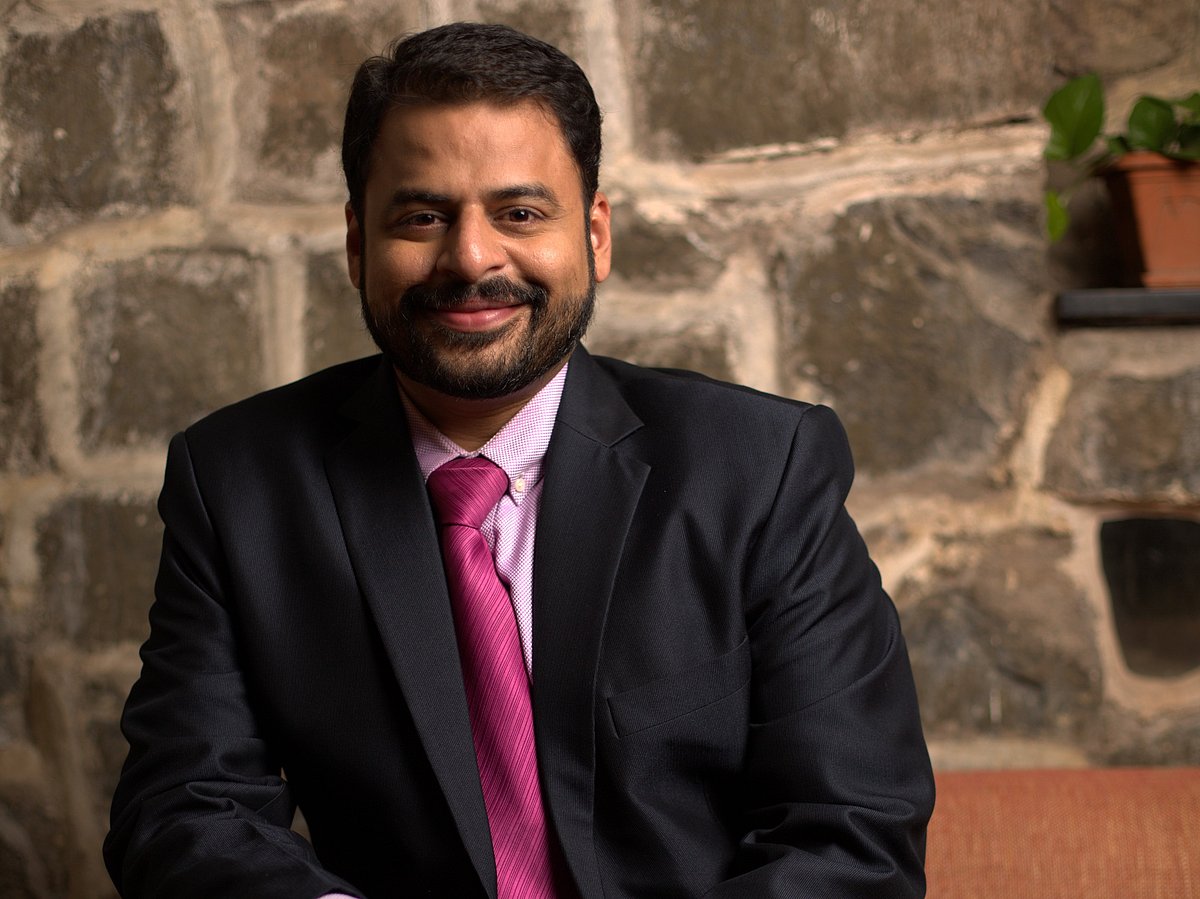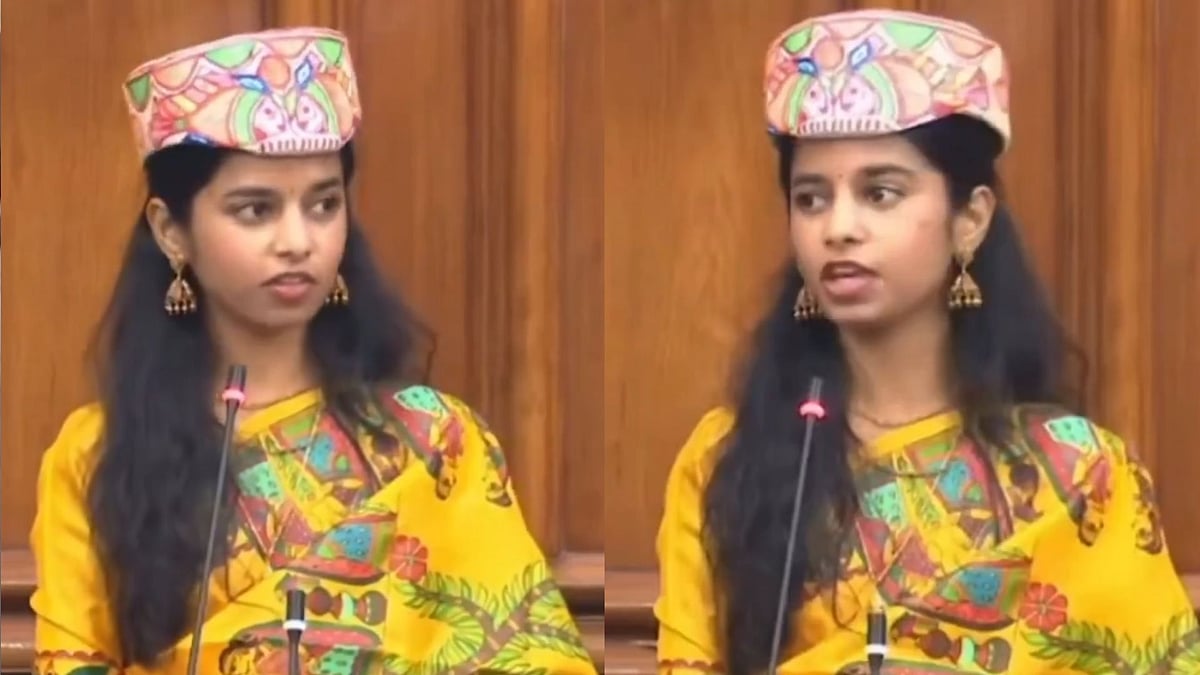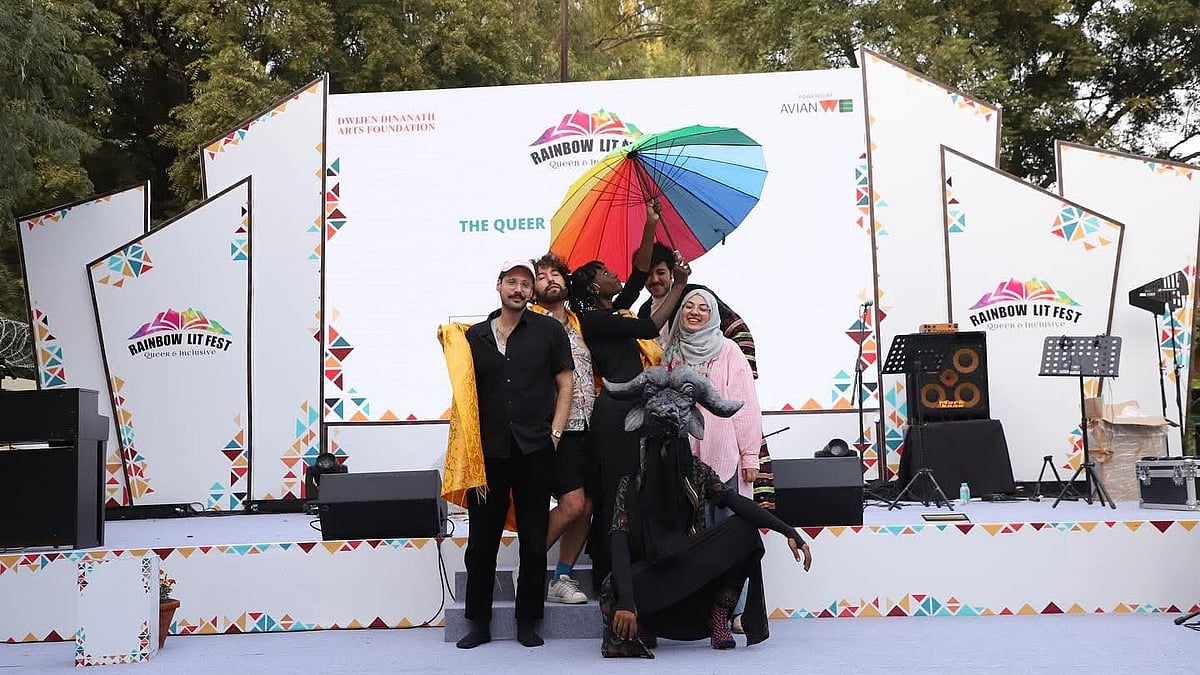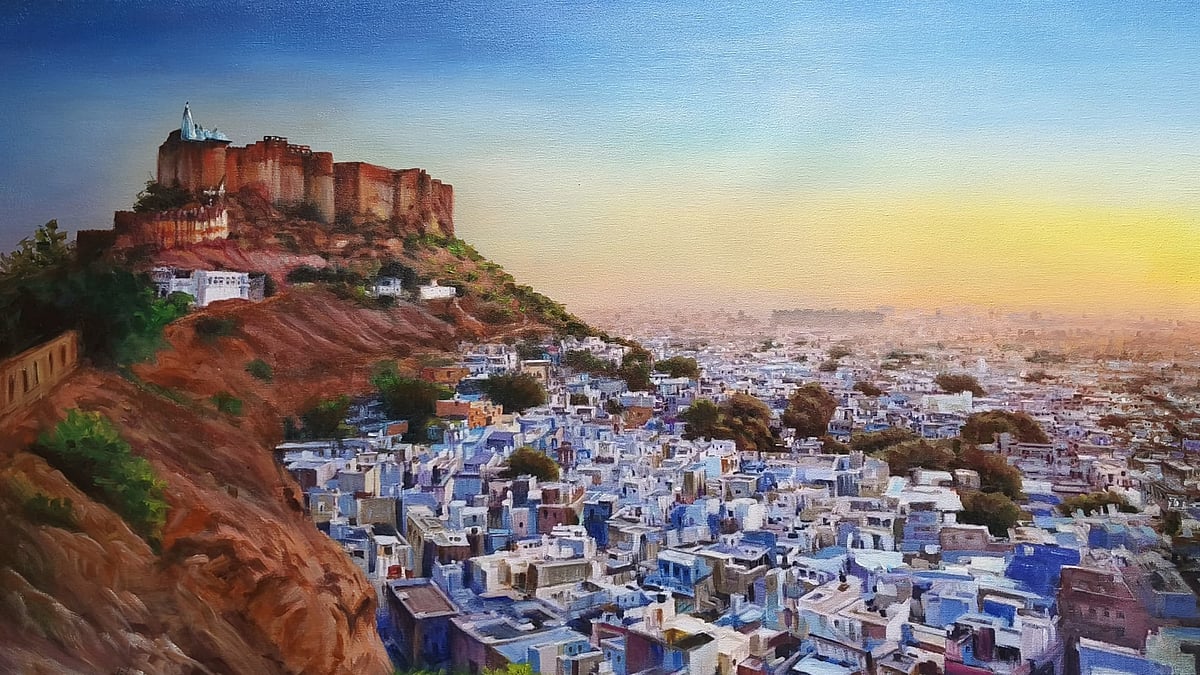Every year, there is great enthusiasm all around the country to celebrate our Independence Day on August 15. In the 78th year of our independence, the Govt. of India has come out with the theme – Viksit Bharat which goes with their vision to develop India into a developed nation.
We thought of asking industry leaders from different sectors regarding the changes they feel can happen in their field and aid the theme. Here’s what they had to say!
Education

Prof. Sudeep S, PhD, CISA, FORE School of Management |
Prof. Sudeep S, PhD, CISA, FORE School of Management
Viksit Bharat @2047 is an ambitious project launched by our Prime Minister in December 2023. The PM urged that every institution and every individual should set their goal to transform India into a developed country by the time we complete 100 years of independence. He emphasised the critical role of the students and youth of the country in realising this goal. The National Education Policy (NEP), released in 2020, plays a crucial role in ensuring the vision of the Viksit Bharat is attained.
The NEP 2020 stresses the holistic development of the upcoming generations by integrating cognitive, emotional, and physical development. One major change brought about by the NEP 2020 is the introduction of a flexible curriculum in which students can choose subjects based on their interests and aptitudes. The traditional 10+2 structure is replaced by a 5+3+3+4 model (Foundational, Preparatory, Middle, and Secondary stages). There is considerable freedom given to students while they pursue their higher studies. There is a provision to exit with a certificate after one year, a diploma after two years, and a degree after three or four years. The students can also utilise the benefits provided by the Academic Credit Bank system which allows students to accumulate credits for courses taken across institutions. This facility also allows students to take a break while studying a course, take employment for a brief period and resume their studies without losing the credits accumulated while pursuing the previous course. Therefore, we can expect our youth to contribute more to the nation-building process which ultimately helps achieve our vision of Viksit Bharat.
Another focus point is the introduction of vocational education from Class 6, which includes internships. This is a tectonic shift from our traditional educational system, our students get an opportunity to learn industry-linked skills from a lower age. Our students can align their knowledge-gathering process with their career goals and personal aspirations. This is an essential aspect of building a more balanced workforce that caters to the needs of our industries and not just producing millions of graduates who have low levels of employability. The major challenge faced by our country in current times is this gap between what is produced by our Universities and what is required by the industry. The NEP 2020 is an attempt by the Government to minimise the gap and play a big role in achieving our ‘sapna’ of Viksit Bharat when we celebrate our 100th Independence Day.
Finance

Ameet Venkeshwar, CBO, LoanTap |
Ameet Venkeshwar, CBO, LoanTap
As we align with the Government of India’s vision of ‘Viksit Bharat’, it is evident that India is on a transformative journey towards becoming a developed economy. This journey is significantly influenced by the recurring innovations in the finance industry, which promote inclusive growth and economic stability.
Initiatives by the government of India to promote financial inclusion have brought several unbanked and non-credit citizens into the formal banking system. This has given the less fortunate sections of society access to several government schemes and provided social security. Schemes like Jan Dhan Yojana have empowered individuals and small businesses, particularly in rural areas, by providing essential financial tools and services.
At the same time, the adoption of technology by the finance industry has transformed the way financial services are delivered. Digital payment platforms like UPI have revolutionized transactions and brought convenience and security to millions of users. These advancements have also enhanced credit access for MSMEs, which contribute more than 29% to the overall GDP and play a crucial role in driving economic growth, innovation, and employment generation. Various schemes have been introduced for the benefit of the MSME sector across the country in the areas of formalisation, technological assistance, infrastructure development, credit support, sustainable practices, skill development and training and market assistance.
Regulatory reforms have further strengthened the financial landscape. We can expect economic stability to be enhanced owing to the various initiatives in the recent Union Budget and the emphasis on digitalization and long-term economic vision. This will promote further growth in the finance sector and foster an environment that encourages investment and innovation.
Sustainability and environment

Vineet Mittal, Chairman, Avaada Group
“Viksit Bharat’s vision must be seen in the context of a well-balanced development which depends on three important pillars: Energy Security, Social Security and External Security since they make a nation that is not only economically prosperous; but also resilient and self-sufficient.
The point is that energy security matters. However, we should be able to maintain the equilibrium between growing energy needs, economic expansion and environmental conservation. It is an absolute requirement for our movement toward being an advanced country that this equilibrium can be achieved through the 3E’s (Economy, Energy and Environment).
Social Security is just as important in education. Until all children, regardless of their backgrounds, have access to education of equal quality as the richest kids, India cannot call itself Viksit. It is not only a question of equality; it’s also unlocking all our human capital.
The triad is completed with external security. A strong nation that will deter any external threat must be one of a developing India. In other words, we want to be called “golden lion”, which can protect its people and interests rather than being referred to as sone ki chiriya (golden bird).
Economic metrics alone are not what we see for Viksit Bharat. It means a country that holds its head high in the globe – it is economically vibrant, socially equitable and environmentally conscious while being strategically secure. This kind of holistic development shall change India from a developing state into a developed nation which exemplifies the true meaning of ‘Viksit Bharat’.
As we progress, let us remember that sustainable practices are not just environmental imperatives but strategic necessities. They ensure our growth is not just rapid but also resilient and long-lasting. By focusing on these key areas, we are not just building a developed India, but an India that is a model for sustainable and inclusive growth in the 21st century.”
Politics

Prof. (Dr.) Anviti Gupta, Dean, Sharda School of Humanities & Social Sciences
Every citizen’s participation in the democratic process and a thorough grasp of the political environment are essential to realising the vision of ‘Viksit Bharat’. It is necessary to start political reforms that strengthen local government and promote active involvement in the formulation of public policies. Furthermore, to establish confidence and motivate group initiatives for nation-building, governmental institutions must promote accountability and transparency. Government leaders must collaborate with the grassroots to guarantee that the citizens’ ambitions play a substantial role in turning India into a developed country by 2047. Moreover, interdisciplinary collaboration among educational institutions, industries, and government bodies can catalyse innovation and drive sustainable development. Through these initiatives, we can empower our youth to be the torchbearers of change, ultimately contributing to a robust, prosperous, and self-reliant nation. The focus of the government’s Viksit Bharat policy is on strategic changes that encourage inclusive growth. State governments, businesses, and civil society organizations must work together effectively to make sure that policy initiatives result in sustainable development. Reforms must be implemented continuously to meet the changing needs brought forth by the national and international economic environments.
Agriculture

Maninder Singh Nayyar, CEO and Founder, CEF Group
Aligned with the '’Viksit Bharat’ vision, what we want is to transform the agricultural sector. Sustainable agriculture practices will not only ensure strong growth in the industry but also be sensitive towards the environment for long-term development. Through advanced agricultural practices, we can directly address food security, which caters to the developing population with safe and nutritious food. The reduction of carbon emissions through renewable energy will act to make the sector comply with international sustainable development goals, thereby creating a pertinent positioning of agriculture in the fight against climate change. That's not all; transforming agriculture in terms of rural development will drive job creation, infrastructure improvement, and economic growth in rural areas. This will ensure there is a balanced approach to national development. Ultimately, through changed farming practices, we can contribute greatly to the goal of a developed India set by the government, which desires us to stand tall as a self-reliant and resilient nation. Commitment to these changes will pave the way for a prosperous and sustainable future for one and all.
Health

Dr Simon Grant, Physician and Trustee, Ruby Hall Clinic
In our quest for a Viksit Bharat, the integration of innovation in healthcare is pivotal. The future of medicine lies in harnessing advanced technologies, such as artificial intelligence, telemedicine, and personalised medicine, which are set to revolutionize patient care. With the growing accessibility to digital health platforms, we can bridge the gap between urban and rural healthcare, ensuring that every individual has access to essential medical services, regardless of location. Data analytics will enable us to predict health trends, allowing for proactive measures in disease prevention and health promotion.
Furthermore, innovations in biotechnology will accelerate drug development processes, making treatments more effective and tailored to individual genetic profiles. A collaborative approach among healthcare professionals, researchers, and policymakers can foster an ecosystem where continuous learning and adaptation are sought, making our healthcare system more resilient and responsive to evolving challenges.
Ultimately, embracing innovation will not only enhance the quality of care we provide but also empower the citizens of India to take charge of their health. Together, we have the opportunity to elevate our nation’s health standards, ensuring a healthier, more vibrant future for all. This expands on the potential transformations in healthcare through innovation and underscores the collaborative effort needed for progress.
Manufacturing

Manish Bansal, Director and CEO, Window Magic
We wholeheartedly support the government’s vision of a Viksit Bharat. The manufacturing industry plays a pivotal role in realizing this ambitious goal. By integrating cutting-edge technologies and sustainable practices, we can make substantial contributions to energy efficiency and environmental stewardship. The industry’s commitment lies in crafting innovative solutions. Moreover, by prioritising local manufacturing and generating employment opportunities, we can bolster the economy and accelerate the nation’s progress.
We firmly believe that by investing in research and development, we can develop products that not only meet but exceed the expectations of Viksit Bharat and put the country on the global map for its self-sustainability and transform it into a developed nation. The industry’s dedication to excellence and innovation will enable us to create a lasting positive impact on the nation’s building and construction landscape.
Hospitality

Vishal Kamat, Executive Director, Kamat Hotels India Ltd and Chairman, CII, Maharashtra
A 'Viksit Bharat' cannot exist without the harmonious integration of its diverse states, much like a flower cannot blossom without the synchrony of its petals, pollen, stigma, and other parts. The people of India, representing this diversity and their vibrant culture serving as the flower's fragrance, are essential for this bloom.
Economic progress alone cannot achieve this. The government and society must also prioritise mental health, mental well-being, and personal development. The COVID-19 pandemic underscored the importance of the hospitality sector to societal well-being. Despite having comfortable homes and communities, people felt confined and yearned to travel for mental relief and a break from routine. This need for freedom and positivity led to the rise of work-from-anywhere and school-from-anywhere practices, helping society to recover and emphasising the critical role of entertainment, travel, music, and art.
The government’s efforts to bring in first-timers into the ‘Education to Job’ current scheme are good to bring in more youth into our field from the unorganised sector. Also, the focus on improved infrastructure, air travel, road connectivity, etc., is helping our hospitality sector. It is making more and newer destinations to the mass audience which was earlier not available due to poor infrastructure. Govt needs to focus further on creating various centres of excellence in terms of MICE, be it Mumbai the financial and MICE tourism capital or Delhi or Bangalore which will become the expat hub and a rival to Singapore or Hong Kong or Dubai.










